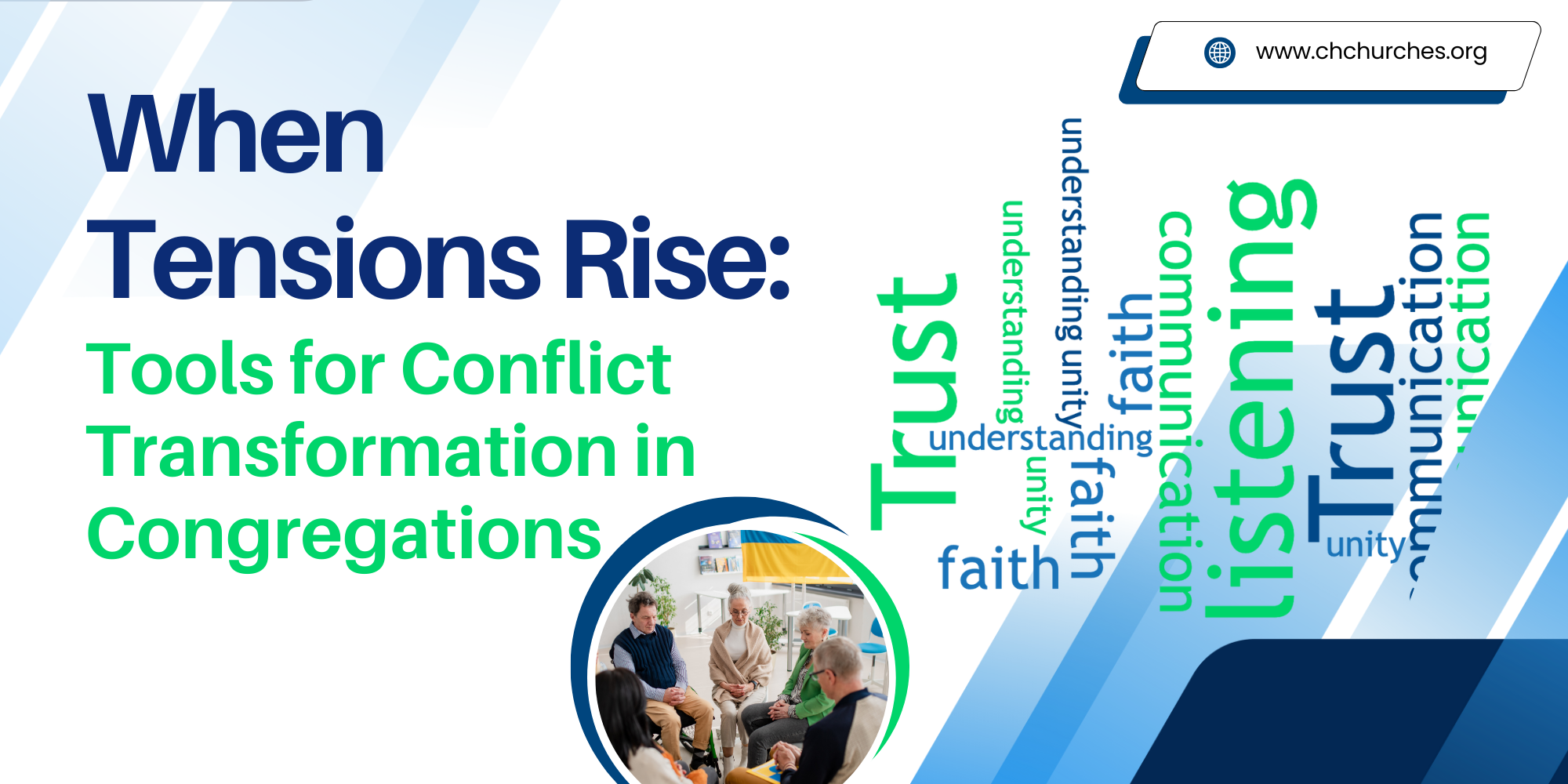“If you’ve got people, you’ve got problems.” Conflict within congregations is unavoidable. Whether it concerns disagreements over ministry direction, financial decisions, or interpersonal tensions, churches encounter challenges stemming from differing opinions and emotions.
Communication breakdowns are inevitable, and misunderstandings can heighten tensions. The church serves as a place of worship and a personal community, akin to a family system. This emotional connection can amplify disagreements.
“To name it is to tame it.” I’m sure you’ve heard that aphorism before. It often appears in family systems theory. While it’s not a cure-all, it is a beneficial practice that can set a relationship or organization on the path to health. “Naming them” creates space to discuss the diversity that always exists in a group.
Conflicts need not cause division.
Tools for Resolving Congregational Conflicts
1. Create a Culture of Open Communication
To foster open and respectful communication, create opportunities for members to share their concerns. Congregational conversations provide an ideal setting for honoring everyone’s voice and celebrating the strength that comes from diversity. Ensure that leaders and facilitators actively listen and remain open to hearing different perspectives without judgment.
2. Establish Clear Conflict Transformation Processes
Every pastor is called to resolve individual or family conflicts and to serve as a “calm presence.” A clear process for addressing these disagreements can help prevent disputes from escalating. It is always wise to move toward the conflict rather than away from it. For example:
• Begin with a private conversation between the parties involved.
• If the issue remains unresolved, consider involving a neutral third party, like a trusted church leader or a wise Bible study teacher.
• Promote group discussions in broader conflict situations to ensure all parties are heard. I remember sitting in the fellowship hall with another leader to mediate a conflict between two families in the church.
3. Engage in Active Listening and Empathy
Remember, when tensions escalate, emotions frequently soar.
Practice active listening by focusing on the speaker without interruption. Ask clarifying questions and summarize what you’ve heard to de-escalate conflicts, ensuring people feel valued and understood.
Pair with empathy: Strive to understand where the other person is coming from, even if you disagree.
4. Use Scripture and Shared Values as a Foundation
Return to the congregation’s core values and spiritual foundation during conflicts. Remind members of the biblical principles of love, grace, and forgiveness. Verses like Matthew 18:15-17 outline steps for resolving disputes and can provide guidance and promote unity.
5. Seek External Support When Necessary
Sometimes, conflicts are too complex or emotionally charged to resolve internally. In such cases, engaging an external consultant with expertise in church conflict transformation may be helpful. A new perspective can help unravel complicated dynamics.
At CHC, we have seasoned conflict transformation consultants who can help you transform a troubled past into a future of health and vitality. While conflict can be uncomfortable, it can also catalyze new opportunities.
We can assist you in—
• Refining your mission and vision: Disagreements about the church’s direction can lead to deeper reflection and refinement of the congregation’s strategic goals.
• Strengthening relationships: When managed effectively, resolving conflicts can enhance members’ trust and understanding.
• Building resilience: Each resolved conflict provides the congregation with improved tools to tackle future challenges.
Conflict in congregations is not a sign of failure but rather an opportunity to practice what we preach: grace, humility, and unity of the Spirit. By equipping ourselves with practical tools and relying on our shared faith, we can transform moments of division into powerful testimonies of God’s work among us.

Regarding step 3 on active listening, Peter Steinke developed a process as an opional part of Bridgebuilders that I found to be useful, “Tell it to Pete” (when he was the facilitator).
There is a structured meeting with ground rules announced in advance, with a recorder and a timer, and people invited to address the facilitator with their comments on these three topic:
a. What could change things to make it better
b. What could have happened that didn’t happen, and
c. What people wanted that they didn’t get.
People speak on topic for 2” each, then 3” for a second speech if no one else wanted to speak. There is a two 2” period between speeches for prayer and reflection.
The facilitator acknowledged comments with pastoral respect and maintained strict neutrality except to enforce the ground rules by refocusing speakers on the allowed topics and to clarify ambiguities as necessary.
The total event lasts 90″, but a 2/3 vote can continue it for another 30 “
When I facilitated this process, I found that the tone shifted from antagonism toward problem solving. As an outsider, I wasn’t a party to the conflicts. For a member of the congregation to lead this process, the person would have to be respected broadly, be neutral in this role, and be skilled in leading such a process.
Thank you, Carl, for this good word from a trusted source, Peter Steinke.